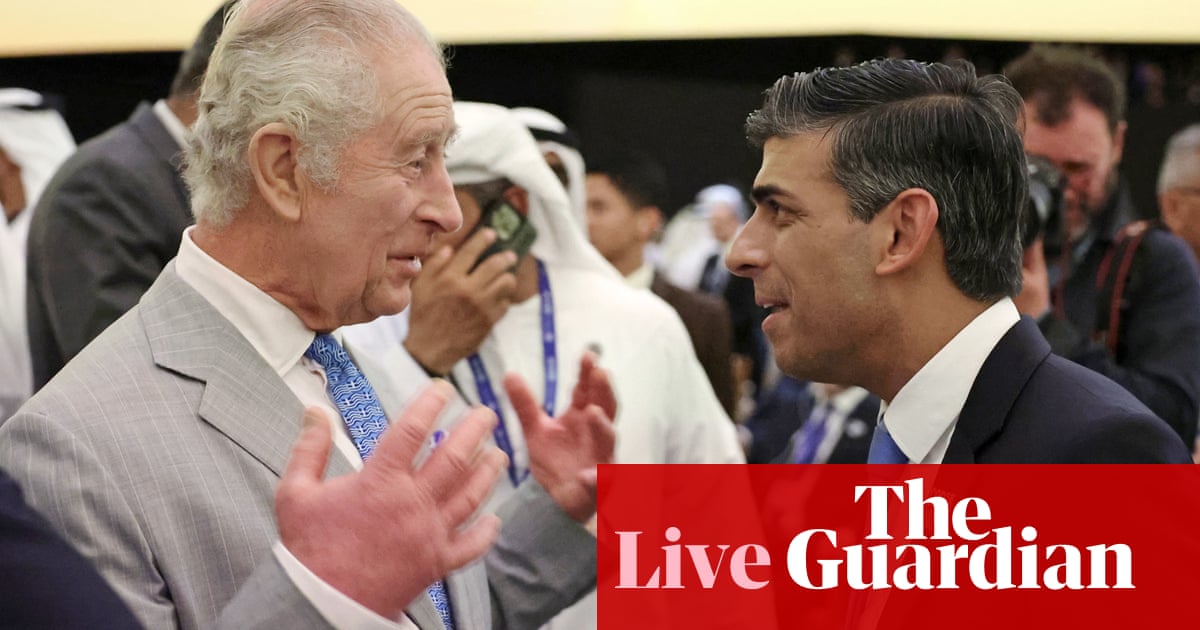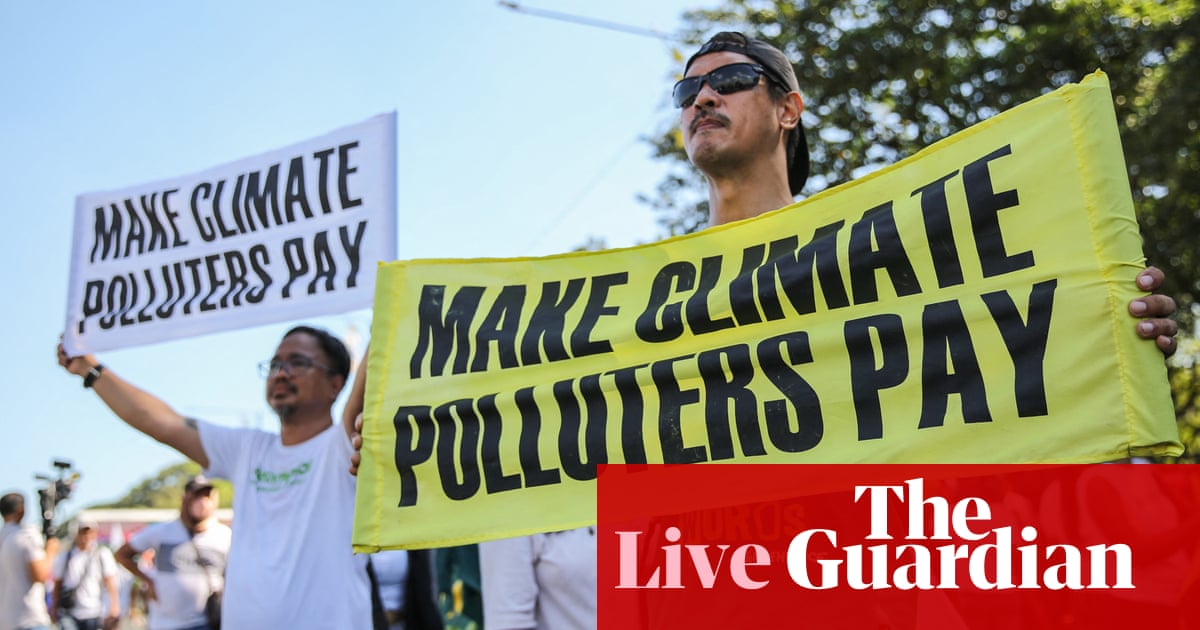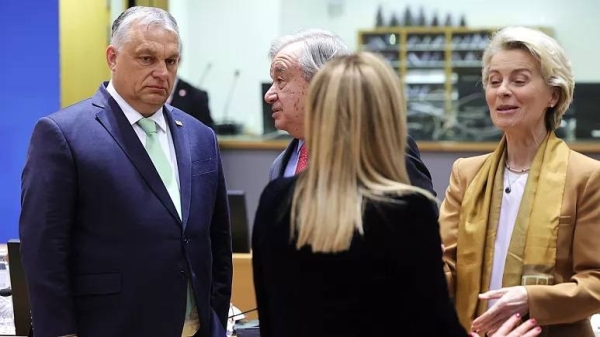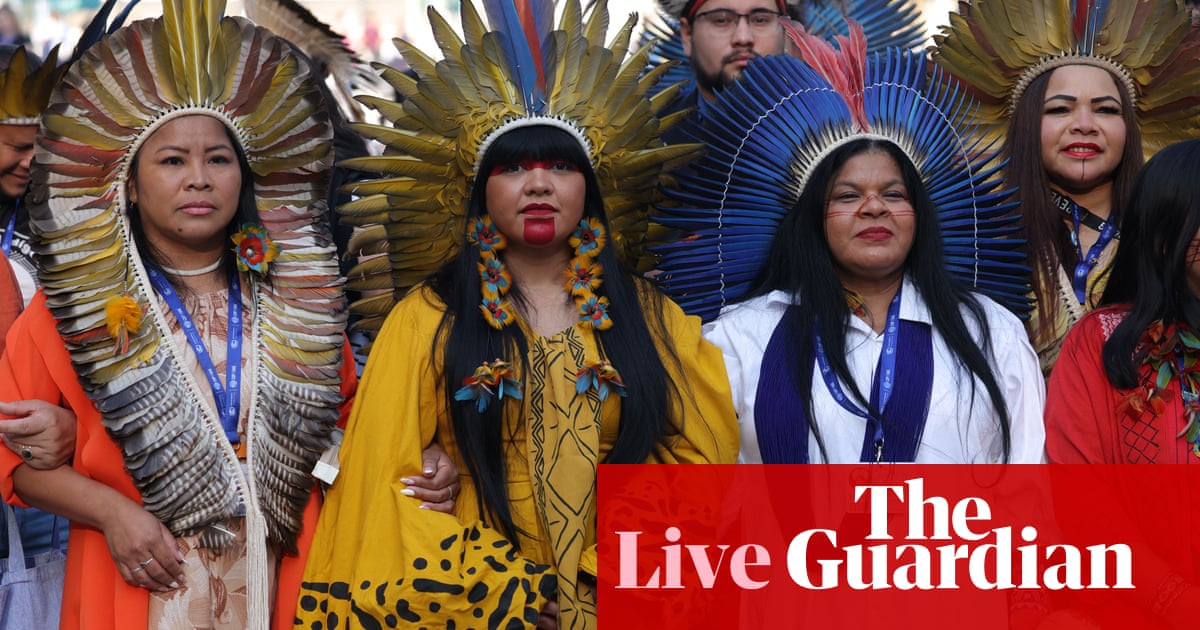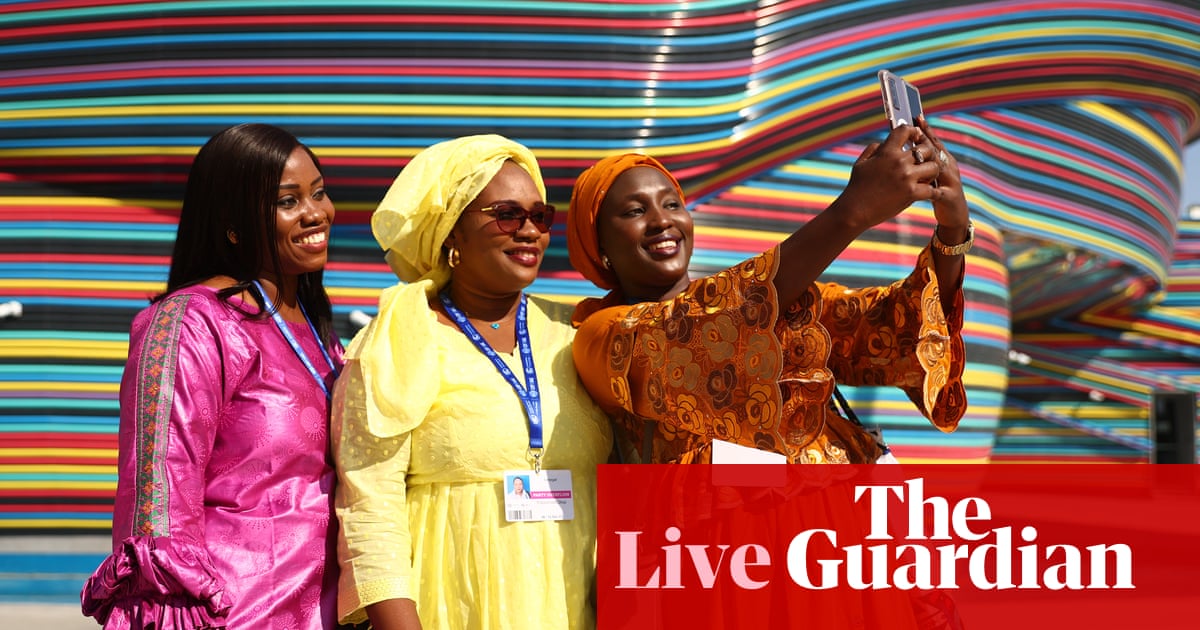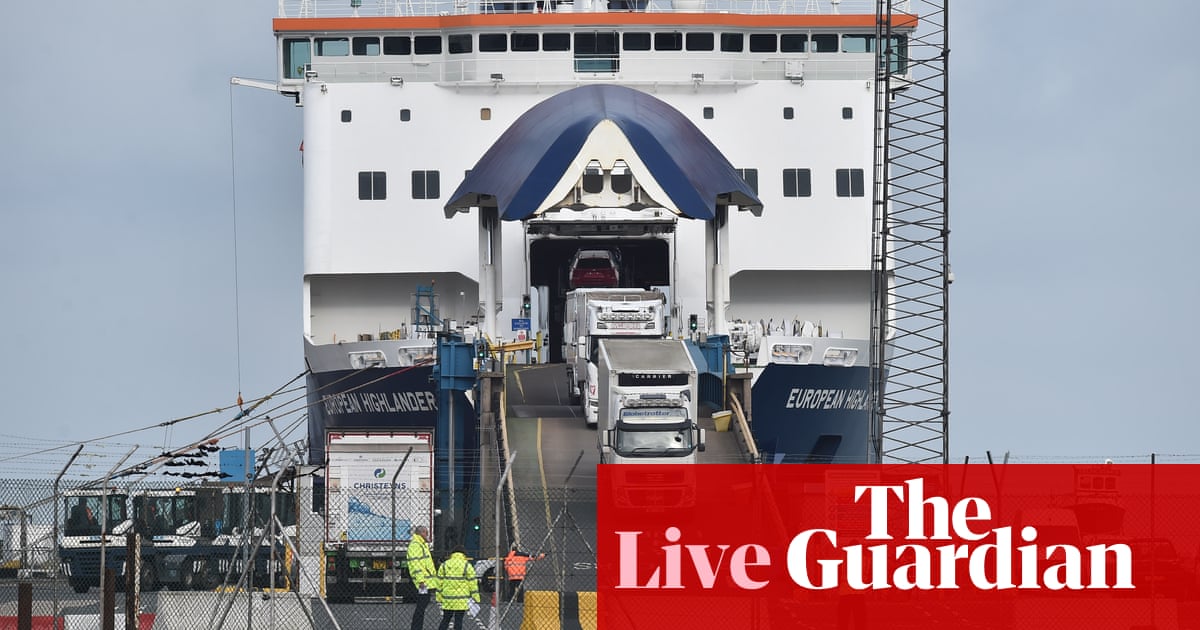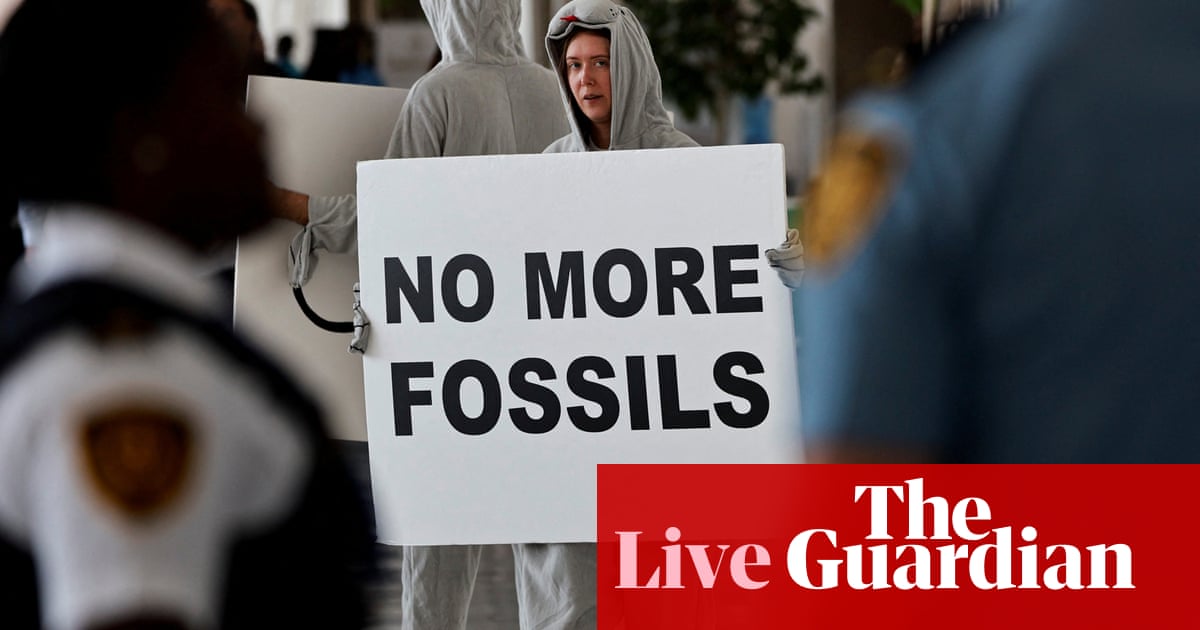
EU: Elements of the text are ‘unacceptable’
Wopke Hoekstra, the EU’s climate tsar commissioner, and Teresa Ribera, Spain’s environment minister, a co-leader of the EU delegation at Cop28 in Dubai, have been giving their reaction to the text.
Both were clear that this is the beginning of a process that could last days. Hoekstra told reporters his flight home was booked for Friday and indicated this was a long way from what was needed.
Ribera said: “We think there are elements in the text that are fully unacceptable. We want to have 1.5C being the safe space. We are going to fight for 1.5C. The current text provides some reference to the science, some reference to 1.5C, but it is not consistent with dealing with energy. We need to get into deeper discussions with many other partners, and of course with the president.”
Hoekstra said: “I cannot hide the fact from you that as it stands, the text is disappointing. It is lengthy, we are still looking into all of the various elements. Yes, there are a couple of good things in there.”
Cool reception for draft global stocktake text on penultimate day of summit
The overwhelming reaction has been negative to the new draft text on the Cop28 Global Stocktake, which only mentions action on fossil fuels as an option rather than a requirement, and as a “reduction” rather than a “phase-out.’ We haven’t heard yet from the two biggest emitters: China and the United States, but it looks like there will be pressure from others for a new draft.
Ministers and heads of delegations will hold closed door meetings in Dubai this evening where there will no doubt be further negotiations. Before I go here is a summary of what happened today:
New draft text released by Cop28 presidency omits reference to a “phase-out” of fossil fuels
Small island states have complained their voices are not being heard
Most civil society groups have condemned the text as inadequate
Azerbaijan and Brazil have formally been approved as hosts of Cop29 and Cop30
Saudi Arabia has been accused of holding the talks hostage
The UN secretary general has urged delegates to ‘End the fossil fuel age.’
Tomorrow is supposed to be the final day, but it will be a miracle if an agreement is reached before the scheduled close.
Thanks for reading, and for your comments. See you again tomorrow.
Avinash Persaud, the climate economist who is also a prominent adviser to the Barbados prime minister, Mia Mottley, told the Guardian:
This is not a bad text. Some will be disappointed about the lack of clarity on a phase-out of fossil fuels, but what this text recognises is the reality that you can’t phase out fossil fuels before you have a massive investment in renewable energy which needs huge finance flows.
This text lays out a plan for a big increase in renewable energy, which we really need to back up with contributions of finance. To get to a phase-out, you need finance, which is what allows the investment in renewables. So to focus on a phase out without finance and renewables would be just virtue signalling. Unless you provide the means of implementation, what does a phase-out mean?
We can live with this text as long as we leave here with an understanding that this means a massive investment in renewable energy in developing countries. That is the only pathway to a phase out of fossil fuels.
Hindou Oumarou Ibrahim from the Chad delegation has lambasted the global stocktake draft as “business as usual”.
Chad is a country really impacted by climate change and we came to the Cop wanting to see global solidarity. The text on fossil fuels is not good enough, it is bad language and contradicts claims that they are guided by science. And these technologies that are not proven, when we know what works.
The developed countries must phase-out fossil fuels, and they must do it fast. They must commit to the finance that the global south needs for their own survival. Let’s do transition but if it’s not inclusive, it cannot work.
Some have suggested the finance part is a bit better than it was but Oumarou Ibrahim is also disappointed. She added:
We also don’t see clarity on finance for adaptation. They say doubling adaptations – but doubling what? Where is the finance going to come from, will it be additional?
But the presidency is not making the decision alone … what we are seeing here is business as usual from the global north again, who don’t want to put in the money and don’t want to change their lifestyle to save humanity.
According to the former US vice-president Al Gore, the conference is “on the verge of complete failure”.
He tweeted: “This obsequious draft reads as if Opec dictated it word for word. It is deeply offensive to all who have taken this process seriously.”
EU: Elements of the text are ‘unacceptable’
Wopke Hoekstra, the EU’s climate tsar commissioner, and Teresa Ribera, Spain’s environment minister, a co-leader of the EU delegation at Cop28 in Dubai, have been giving their reaction to the text.
Both were clear that this is the beginning of a process that could last days. Hoekstra told reporters his flight home was booked for Friday and indicated this was a long way from what was needed.
Ribera said: “We think there are elements in the text that are fully unacceptable. We want to have 1.5C being the safe space. We are going to fight for 1.5C. The current text provides some reference to the science, some reference to 1.5C, but it is not consistent with dealing with energy. We need to get into deeper discussions with many other partners, and of course with the president.”
Hoekstra said: “I cannot hide the fact from you that as it stands, the text is disappointing. It is lengthy, we are still looking into all of the various elements. Yes, there are a couple of good things in there.”
Astute, as usual, from Simon Evans of Carbon Brief, who notes that hardly any of the verbs in the latest draft global stocktake text at Cop28 actually ask for action.
‘Epic mess’ – Bill Hare of Climate Analytics
Dr Bill Hare, the climate scientist and chief executive of Climate Analytics, has been to 27 Cops in person and attended the 28th – Cop26 in Glasgow – virtually due to Covid-19.
He told the Guardian that this year’s text was an “epic mess” and there was “no way if it was operationalised that it would keep 1.5C in reach”.
“I would say it’s giving every fossil fuel exporter on the planet everything they need to expand fossil fuel production. They might not say it, they might have crocodile tears, but I think any country involved in exporting coal, oil or gas would be privately very happy.”
Policy analysts have reacted negatively to the latest draft text at Cop28, particularly the section on fossil fuels and energy, which is introduced as “actions that could [be] included”, not actions that must be taken. One called it a “choose your own adventure” approach to climate action, describing it as “absolutely disappointing”.
“It’s full of weaker proposals than we’d hoped, and internal contradictions,” said Tom Evans at the E3G thinktank. “On the one hand, it talks of the need to limit temperature rise to 1.5C, to peak emissions in 2025, to cut emissions 43% by [2030] and 60% by 2055. But all of those require concrete actions. What’s in this text doesn’t add up: you have a long menu of options on the energy section, [but] not including the clear, unambiguous phase-out of fossil fuels.” A phase-out did appear in the previous draft.
“What we now need to see are those [countries] who are really pushing for ambition rallying together and trying to flush out and isolate the people who are holding this text back,” Evans said. “One can only hope and pray.” Saudi Arabia has been seen as a key obstructor.
David Waskow, at the World Resources Institute, said: “This text doesn’t send the clear signals that are needed to avert the climate crisis. The suggested set of actions is merely a pick-your-own menu.”
“It’s a ‘choose your own adventure’ approach to climate action,” he said. “But you can’t just pick one, or a couple, out of that list. The world is going to need to tackle all of those transformative changes together. And we know that there are enormous benefits from doing so economically and for development. [The draft text] is absolutely disappointing.
Jamal Srouji, also at WRI, said the text was weaker than previous versions regarding specific timelines for the tripling of renewable energy and phasing down coal, and also on the details of ending fossil fuel subsidies, which run at $7tn a year.
Alex Scott, at E3G, said progress on adaptation for climate change, a vital issue for developing nations, was poor: “We have seen the calls for a roadmap for delivering on doubling [the funding for] adaptation that were in the previous draft of the text have been taken out.”
‘Relieved that it’s not completely biased’ – Third World Network
There’s been a lot of quick takes on what is a pretty substantial and complex document, but the president of the G77 plus China, which represents a bloc of 135 countries, and the African group have told me that they are still digesting.
Meena Raman, Cop veteran and climate policy expert from the Third World Network, says that she’s relieved that it’s not totally biased towards the wealthy nations, and that there’s likely to be a diversity of reactions from the developing and developed world. She said:
“It reads like the president is trying to manage a balancing act, with some things the G77 proposed, and others that developed countries pushed for. We don’t know yet how the parties will react, but you can never keep everyone happy - that’s negotiating - it’s always a delicate balance. But I am a bit relieved that it’s not completely biased. The language on finance seems a little bit stronger, but then we have global targets pushed for by the EU. For the first time we have language in the text about consumption and production, which is interesting… remember George Bush said ‘the American lifestyle is non-negotiable’.
Raman, who will be present for the countries’ reaction tonight, left me with one piece of advice: “This isn’t the final text, things can still happen.”
Amazon rainforest to host first Cop in 2025
Brazil has been formally chosen to host the 30th conference of the parties to the United Nations framework convention on climate change.
Cop30 will take place in the city of Belém between November 10 and 21 2025. This will be the first Cop to be held in the Amazon rainforest, which will be an opportunity to put nature back at the forefront of the climate debate, rather than it be marginalised by energy, technology and markets.
Marina Silva, Brazil’s minister of the environment and climatechange, said:
“With its immense biodiversity and vast territory threatened by climate change, the Amazon will show us the way. It will also remind us of how the three Rio conventions are intertwined not only in their challenges, but also in the synergistic solutions it provides. Holding Cop30 in the heart of the forest is a strong reminder of our responsibility to keep the planet within our 1.5C mission.”
Before that, however, will be Cop29, which will be held in Azerbaijan, the third petrostate in a row to host the conference.





